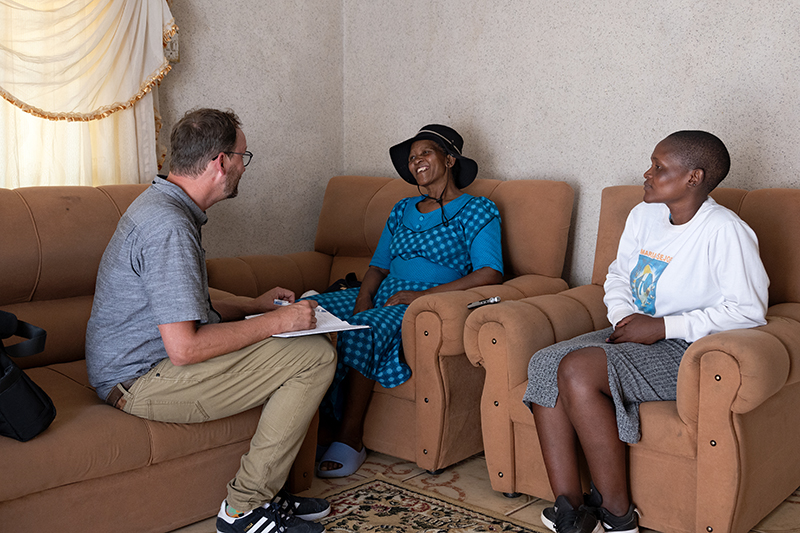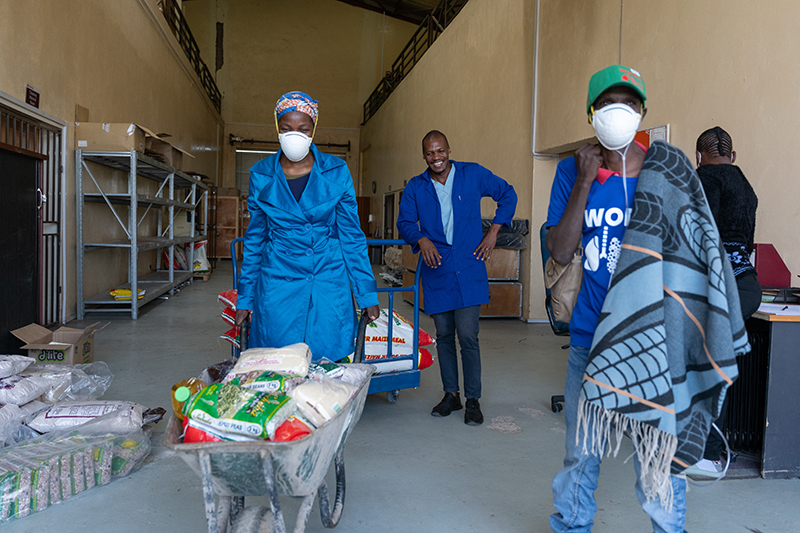Need to Know: Treatment Supporters
Learn who they are, why they’re key to tuberculosis care
Posted on Jan 15, 2025

Editor’s Note: This blog is part of our Need to Know series, which highlights interesting information on a single subject. If you’d like to check out previous posts, here are a couple of the most-read stories in the series: MUAC and malnutrition and social support.
Taking daily medication can be challenging, especially when there’s unpleasant side effects. However, completing care can be lifesaving for people, especially those with tuberculosis (TB)—the world’s deadliest infectious disease.
To support those with TB on their road to recovery, Partners In Health (PIH) Lesotho relies on treatment supporters. They’re key members of a larger, comprehensive care team who are committed to curing patients.
Below, learn more about treatment supporters, including who they are and what they do.
Who are treatment supporters?
Treatment supporters are non-clinical individuals who provide at-home support to patients living with TB. In many cases, a community health worker (CHW) is assigned to the treatment supporter role. If a patient lives too far from a CHW, someone else—oftentimes a trusted neighbor or friend—is identified by the patient.
At PIH Lesotho, there are four eligibility criteria for treatment supporters: 1) Ability to read and write in Sesotho; 2) Less than 60 years old; 3) Live within an hour walking distance of the patient; 4) No biological relation to the patient. A non-relative is important to help prevent any bias. For example, if a patient experiences nausea or vomiting, a loved one may be more inclined to allow them to skip a round of medication or meal, explains Leshoboro Marumo, PIH Lesotho’s multidrug-resistant tuberculosis (MDR-TB) community coordinator.
Once identified, how are they trained?
If an individual meets the criteria above, the next step is training. In Lesotho, treatment supporters participate in a mandatory five-day program at PIH-supported Botšabelo Hospital. More specifically, at the halfway home—a 14-bed facility where stable patients receive TB care.
During the training, Marumo teaches participants about the basics of TB; how to keep themselves, patients, and community safe; the importance of medication adherence; the positive outcomes of medication adherence; and more.
After completing training, treatment supporters immediately begin caring for their assigned patient.

What responsibilities do treatment supporters have?
Treatment supporters’ primary responsibility is to ensure patients consistently take their TB medication in the right dose, at the right time. To ensure the best care, they are assigned to only one patient at a time.
For months, a treatment supporter visits the patient twice daily at their home during the same time frames: 8 a.m. – 9 a.m. and 4 p.m. – 5 p.m. A strict medication schedule is important for many reasons, including more effectively targeting TB bacteria, maximizing the chance of curing TB, and reducing the risk of drug resistance.
That accompaniment continues for the full duration of a patient’s treatment—no matter how long it takes. If for any reason a treatment supporter can no longer fulfill their responsibilities, then a new person is identified, explains Marumo as he stresses the importance of medication routines.
Treatment supporters’ responsibilities extend beyond medication. They also help connect patients to social support resources, such as nutritious food; and accompany them to appointments at Botšabelo Hospital in Maseru, Lesotho’s capital. Between 2021 and 2024, PIH Lesotho worked with 483 treatment supporters to reach hundreds of patients with MDR-TB, ensuring they continued their medication and attended their scheduled follow-up visits.

Why are they important?
Like PIH’s nurses and doctors, treatment supporters are deeply committed to patients and curing TB. By providing compassionate care, treatment supporters help sick patients become well again.
On a recent home visit in Lesotho, a treatment supporter faced a challenge: the patient was missing. Dealing with marital issues and other personal challenges, the patient had disappeared. Recognizing the critical need for uninterrupted TB care, the treatment supporter was determined to find him. For two months, he made phone calls, house visits, and had countless conversations, in search of the patient.
Finally, there was a breakthrough.
The treatment supporter “went all out to the extent that he found this patient’s brother. I was able to talk to the patient’s brother and he was the one who was able to take us to [the patient]. It was far, very far,” says Marumo, “If it wasn’t for [the treatment supporter], if he had no idea what is MDR-TB, would he have gone this far?”
The patient restarted treatment and is officially cured of TB. For Marumo, that example highlights the importance of educating and training treatment supporters about TB. Through ongoing dedication from treatment supporters and health care staff, TB care is improving for patients across Lesotho and around the world.

